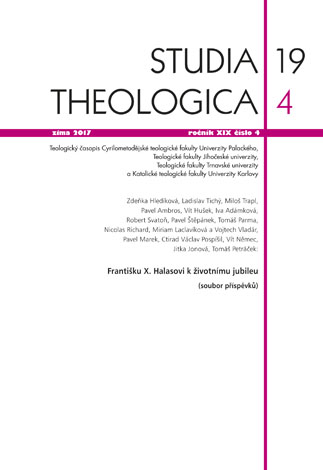Rímsko kánonické reflexie inštitútu zasnúbenia v uhorskom, československom a slovenskom práve
Roman Canon Reflections of the Institution of Betrothal in Hungarian, Czechoslovak and Slovak Law
Author(s): Miriam Laclavíková, Vojtech VladárSubject(s): Theology and Religion
Published by: Univerzita Palackého v Olomouci
Keywords: Betrothal; Roman Law; Christianity; Canon Law; Reflection; Legal historian Basement; Hungarian Law; Czechoslovak Law; Slovak Law
Summary/Abstract: The majority of contemporary modern institutions of secular law have their foundations in history. While with some of them we can fall back on recent history, others have a more than thousand-year-old existence, this being the case of betrothal. This institution emerged in ancient civilizations, yet its shape was tinged for a long time by the domination of Roman law in particular, which also incorporated in a later period certain elements of Greek law. In light of the fact that Roman law was, from the third decade of the fourth century after Christ, increasingly influenced by Christian conceptions, a number of attributions typical for canon law can be found in its contemporary form. The main goal of this article is to point out the legal-historical foundations of betrothal in Roman (partly German) and canon law and analyze their reflections and practical applications in Hungarian, Czechoslovakian and Slovak law. Particular attention is also paid to emphasizing the importance of this institution in historical as well as contemporary law and society.
Journal: Studia theologica
- Issue Year: XIX/2017
- Issue No: 4
- Page Range: 185-218
- Page Count: 34
- Language: Slovak

